The signs of addiction can often be difficult to identify. Once an individual identifies the symptoms and side effects of addiction, the next step in the recovery journey become clear.
Understanding Addiction
Learn about addiction
Substance abuse is characterized as a pattern of psychoactive substance use despite the resulting negative consequences. With prolonged abuse, psychoactive substances can lead to physical and psychological dependence. Someone who has developed substance dependence experiences strong drug cravings, difficulties controlling their drug use, and continued use no matter the damage the drug is causing in their life. Drug addicts will often choose drug use over social, occupational, or scholastic activities and obligations. After time, the repeated drug use causes an increased tolerance, meaning that more and more of the substance is needed in order to achieve the same effects. If drug use is stopped abruptly, withdrawal occurs.
There are a number of different reasons that people begin to use drugs. Some individuals are just curious, others are pressured by peers, and some try drugs in an attempt to escape current emotional states. Additionally, drug use may be an attempt to self-medicate the symptoms of a mental illness, which may or may not have been diagnosed. While drug use doesn’t always lead to addiction or dependence, if using a substance has started to cause problems with your work, school, social life, and health, it is problematic.
The most common drugs of abuse include the following:
Cocaine: A very potent stimulant that is derived from the leaves of the coca plant in South America. Cocaine causes short-term feelings of euphoria, extreme talkativeness, feelings of invincibility, and energy. It also causes dangerous effects such as hypertension, cardiac arrhythmias, heart attack, stroke, and death.
Heroin: An opioid drug created from morphine, a naturally-occurring substance extracted from the seed of the Asian opium poppy plant. This drug can be snorted, injected, or smoked. Heroin is associated with a number of negative health consequences, such as HIV and hepatitis infections from use of dirty needles. Additionally, it can cause respiratory depression, coma, seizures, and death.
Inhalants: Items, easily found around the house or garage, such as glue, cleaning fluids, or spray paint. These substances have the ability to alter the mind when inhaled, which can lead to fatal heart failure within minutes.
Marijuana: A mixture of shredded leaves, flowers, and stems from the plant Cannabis sativa. The main ingredient, THC, causes feelings of calmness and wellbeing. This is the most commonly abused drug in the United States. It is abused through smoking or eating food laced with THC. Marijuana can cause serious damage to the lungs and neural pathways in the brain.
Methamphetamines: Central nervous system stimulants that are very similar to amphetamines. These drugs have a high potential for abuse. Meth is abused through oral ingestion, snorting, smoking, or intravenous injection, providing the user with a quick high. Chronic abuse causes serious health risks such as psychosis, hallucinations, and changes in the structure and function of the brain.
Prescription drugs: Using prescription drugs in a manner not prescribed by the physician. The most common prescription medications abused are narcotic painkillers, anti-anxiety agents, and stimulants. All of these drugs can cause life-threatening health consequences including stroke, heart attack, coma, and death.
Statistics
Addiction statistics
In 2011, SAMHSA reported that the usage of illegal drugs in the United States was on the rise. In 2011, it was estimated that 22.5 million individuals (8.7% of the population) over the age of 12 had abused an illegal drug or abused a prescription drug in the month prior.
Causes and Risk Factors
Causes and risk factors for addiction
Many individuals who develop substance abuse and addiction are also struggling with additional mental health disorders. The most frequent co-occurring disorders include:
- Alcoholism
- Depressive disorders
- Conduct disorders
- Post-traumatic stress disorder
- Panic disorder
- Eating disorders
- Anxiety disorders
- Bipolar disorder
- Schizophrenia
Signs and Symptoms
Signs and symptoms of addiction
The symptoms of substance abuse differ depending on the substance that is used, individual characteristics, the length of abuse, and the frequency of abuse. Some of the common symptoms of drug abuse may include:
- Mood swings
- Anxiety
- Depression
- Irritability
- Blackouts
- Drop in work or school attendance
- Deteriorating physical appearance
- Inattention to personal grooming habits
- Loss of self-control
- Euphoria
- Periods of hyperactivity
- Agitation
- Trouble in interpersonal relationships
- Decreased motivation
- Appearing to be intoxicated
- Neglecting responsibilities at home, work, or school
- Withdrawing from previously-pleasurable activities
- Using the drug to relieve withdrawal symptoms
- Worsening of medical conditions
- Physical dependence upon drug
- Withdrawal effects if drug is discontinued
- Infections
- Changes in sleep or appetite
- Bloodshot eyes
- Pupils smaller or wider than usual
- Lethargy
- Decreased respiration rate
- Psychological dependence
- Worsening of mental illnesses
- Intense preoccupation with drugs, obtaining more drugs, and using more drugs
- Continued drug use despite negative consequences
- Paranoia
- Hallucinations
- Changes in personality or attitude
- Violent, angry outbursts
- Fearfulness
- Legal problems
- Using drugs under risky conditions
- Unexplainable need for money
- Borrowing or stealing money or valuable possessions from others
- Sudden changes in friends, hangouts, and hobbies
- Loss of control over drug use
- Aggressiveness
Effects
Effects of addiction
The effects of addiction and drug abuse can cause serious side effects. While the effects of chronic drug abuse will vary among individuals, the most common effects of drug abuse may include:
- Addiction
- Heart attacks
- Impaired decision-making
- Permanent brain damage
- Worsening of emotional wellbeing
- Increasing medical problems
- Legal problems
- Tolerance
- Changes in the structure or functioning of the brain
- Unintentional injuries
- Accidents
- Damage to all organ systems in the body
- Weakening of immune system
- Increased infections
- Cardiovascular complications
- Nausea, vomiting, and abdominal pain
- Liver damage and/or failure
- Seizures
- Strokes
- Incarceration
- Financial ruin
- Crumbling interpersonal relationships
- Divorce
- Child abuse
- Domestic abuse
Withdrawal
Effects of withdrawal
The effects of drug withdrawal will vary based on the type of drug abused, the length of abuse, the presence of addiction to one or more drugs, frequency of abuse, and amount used. Common withdrawal symptoms to drug abuse may include:
- Restlessness
- Depression
- Anxiety
- Nausea
- Vomiting
- Insomnia
- Excessive sweating
- Tremors or shaking
- Seizures
Co-Occurring Disorders
Addiction and co-occurring disorders
Many individuals who develop substance abuse and addiction are also struggling with additional mental health disorders. The most frequent co-occurring disorders include:
- Alcoholism
- Depressive disorders
- Conduct disorders
- Post-traumatic stress disorder
- Panic disorder
- Eating disorders
- Anxiety disorders
- Bipolar disorder
- Schizophrenia


